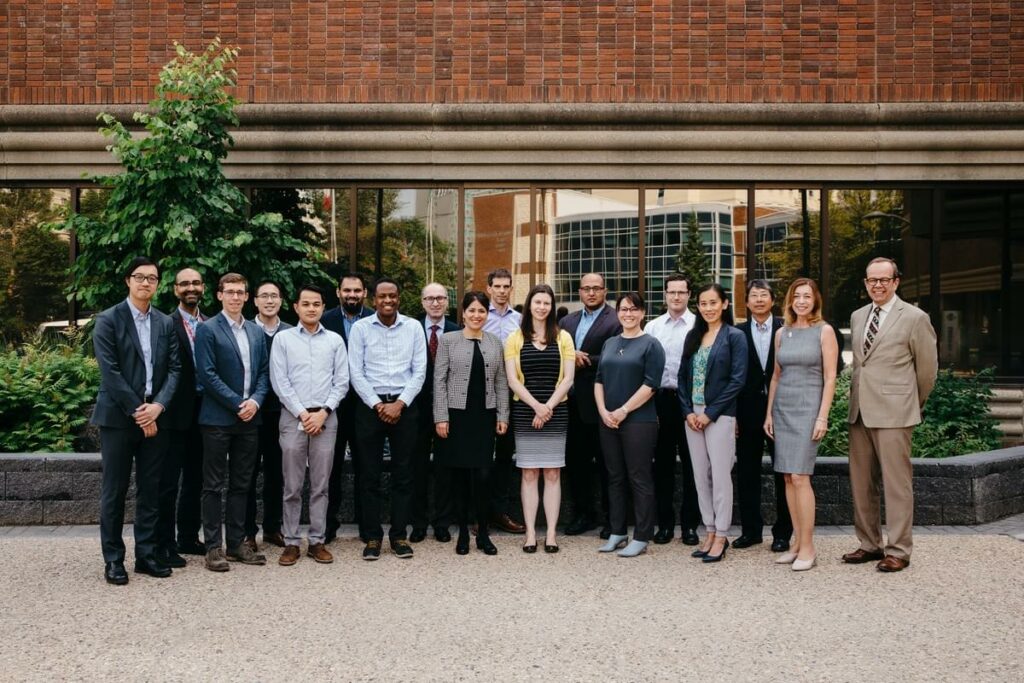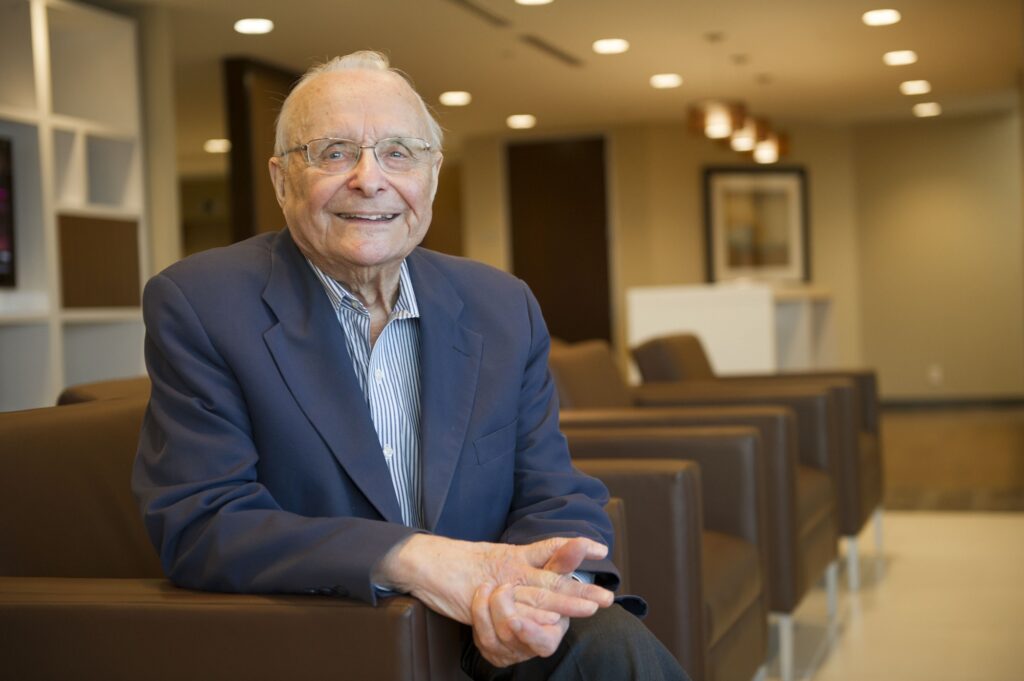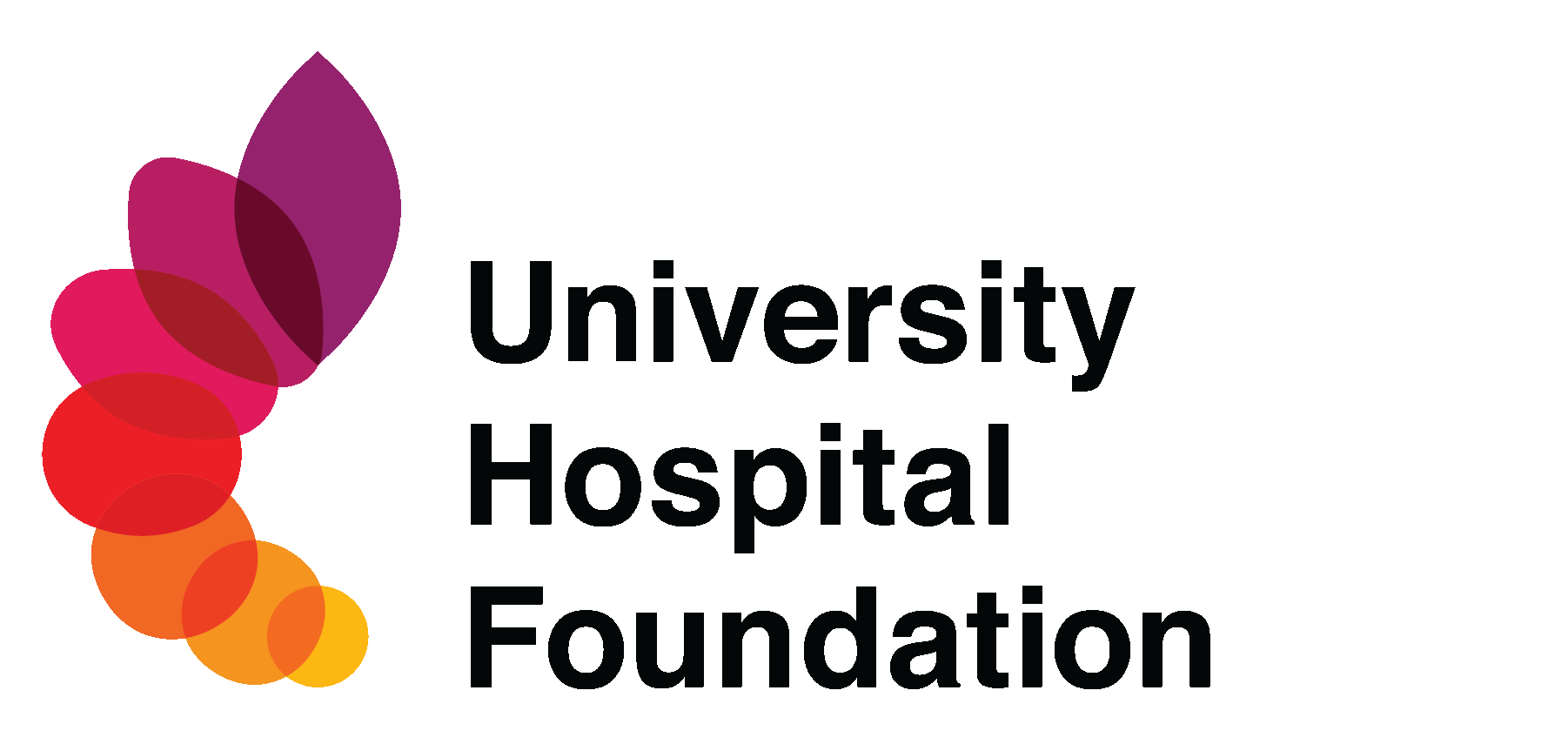- 1-833-448-3843 Make a call.
- info@givetouhf.ca Drop us an email.
- We are located in Edmonton, Alberta
Kaye Competition Helps Fund Groundbreaking Projects in Healthcare

2018 Kaye Competition winners pose for photo.
“The kind of gift that has the power to transform a community”
New treatments for encephalitis and cancer. Better tests to detect heart attacks and thyroid cancer. New methods to prevent lung-transplant rejection.
Thanks to an incredible gift from an Edmonton philanthropist, these innovations and more are on their way to becoming reality-and may one day save lives around the world.
It all began with a $30-million donation to the University Hospital Foundation from retired Edmonton businessman Donald P. Kaye. The donation, one of largest in the history of Canadian healthcare philanthropy, created the Kaye Fund, dedicated to advancing patient care and medical research at the University of Alberta Hospital.
University Hospital Foundation and Alberta Health Services is proud to announce the winners of the 2018 Kaye Competition, which grants individual awards ranging from $25,000 to $250,000. Their bold projects will help transform the face of patient care through quality improvement and research innovation at the University of Alberta Hospital and Kaye Edmonton Clinic.
“This is the kind of gift that has the power to transform a community,” says University Hospital Foundation chair, Jim Brown. “Mr. Kaye’s amazing gift will impact patients and their families every day for generations.”
Born and raised in the Depression era near the hamlet of Brownvale, Alta., Kaye joined Canadian Propane in Prince George, B.C., after high school, and later worked with other national companies, based in Edmonton. He found financial success as a real estate investor starting in the 1960s, and later expanded into land development. But it was his early years in Brownvale that truly taught him the value of a dollar.
“No one in the community had very much. What you did have, you hung on to,” recalls Kaye.
Now, thanks to his lifelong prudence and recent act of overwhelming generosity, local researchers will have funding to do vital work they’d otherwise be unable to tackle. There were seven recipients in the inaugural group last year, and 11 in 2018, with this year’s recipients splitting $1.56 million.
“Encephalitis is not common, but when it happens, it’s devastating,” says Power. Around 20 to 30 per cent of patients die from the illness, which causes inflammation of the brain. Others are left with life-altering neurological conditions such as epilepsy, cognitive changes and other brain injuries. “Around 50 per cent of patients never know the cause,” he adds.
But when Power and his colleagues discovered the pegivrius, they realized they might have stumbled upon a previously unknown cause. “That was a big surprise,” he recalls. It was also promising, because pegivirus has been known to behave similarly to Hepatitis C virus in the body, which means it might respond to already-approved medications that fight Hep C. “To find a previously unrecognized cause of encephalitis that might be treatable is very exciting,” says Power.
With few resources to test their hypothesis, Power and his colleagues turned to the Kaye Competition. They received funding to do research and test medications against pegivirus in cell cultures. The work is now proceeding “full throttle,” says Power, and could lead to a treatment that saves the lives of encephalitis patients worldwide.
“Without funds, we can’t advance technology or create knowledge, so we’re extremely grateful to the Kaye Fund for supporting our research,” says Power.
 Other Kaye Competition award recipients have been able to launch their research careers as a result of the program. Anatomical pathologist, Dr. Benjamin Adam had been wanting to study lung-transplant rejection for two years prior to his award. “I had basically been waiting for financial support to take the next step,” he says.
Other Kaye Competition award recipients have been able to launch their research careers as a result of the program. Anatomical pathologist, Dr. Benjamin Adam had been wanting to study lung-transplant rejection for two years prior to his award. “I had basically been waiting for financial support to take the next step,” he says.
While lung transplants are vital to treating end-stage lung disease, their success depends on preventing rejection, a process where the patient’s immune system treats a transplant as a foreign invader and tries to destroy it. One very serious form, called antibody-mediated rejection (AMR) has been extensively studied in kidney and heart transplants, but not lung transplants, despite it causing an estimated quarter of all rejections.
“The problem with lung transplants is that we don’t really understand the rejection process,” says Adam. The goal of his research will be to use the latest technology to test biopsy samples from patients with lung AMR, to better understand, diagnose, treat and prevent it.
Adam says he’s extremely grateful to University Hospital Foundation’s Kaye Competition for seed funding to establish a new research program that never would have existed otherwise. “These types of local grant competitions are essential to early career clinicians to take our ideas, get them off the ground and apply novel approaches,” he says.
Not to mention funding work that will save lives, in Edmonton and across the globe.
